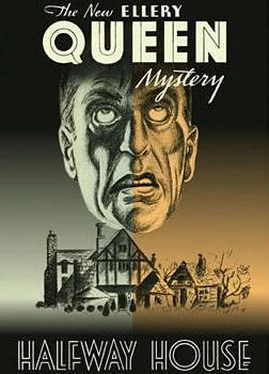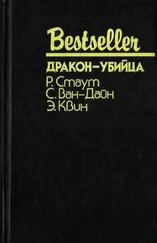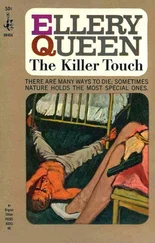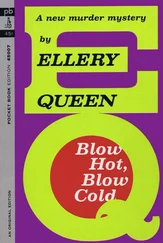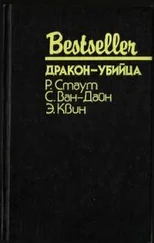“True enough,” admitted De Jong. “Didn’t this bird smoke, Angell?”
“No.” Bill was staring out the front window.
“In fact,” continued Ellery, “the only means of illumination here is the electric lamp on the table. There’s a power-house—?” De Jong nodded. “It’s immaterial whether the occupant of this place had the electricity installed or found it here; probably the latter. In any event, note the bare fact. And, to complete the picture, there is only a handful of chipped crockery, not a trace of foodstuffs, and not even the most ordinary first-aid equipment kept by the poorest for medical emergencies.”
De Jong chuckled. “Got all that, Murph? That’s dandy, Mr. Queen; couldn’t have put it better myself. But when it’s all added up, what the devil have you got?”
“More,” retorted Ellery, “than you apparently realize. You have a house in which the occupant neither slept nor ate — a place with extraordinarily few of the characteristics of a dwelling and all the indications of... a transient shelter, a wayside convenience, the merest stopover. Moreover, from various signs you can deduce the quality of the occupant. This fawn rug is the only one of the accouterments here which doesn’t date from the squatter era — much too regal and costly. I should say whoever has been using this place picked it up somewhere second-hand at a respectable price. A concession to sheer luxury in taste — that’s significant, don’t you think? This tendency to Sybaritism is borne out by the clothes on that rack, by the curtains on the windows — rich stuffs, but badly hung... the masculine touch, of course. Finally, the interior is almost meticulously clean; there isn’t a speck of dirt or ashes anywhere on the rug, the fireplace is clean as the proverbial whistle, no dust visible to the prying eye. What kind of man does all this paint?”
Bill turned from the window; his eyes were rimmed with red. “It doesn’t paint Joe Wilson,” he said harshly.
“No,” said Ellery. “It certainly does not.”
De Jong’s smile faded. “But that doesn’t jibe with what Wilson told Angell over the ’phone today — that nobody but himself knew about this place!”
“Nevertheless,” said Ellery in a queer tone, “I think that another man entirely is involved.”
The voices were loud outside. De Jong scrubbed his chin and looked thoughtful. He said: “That sounds like the goddamned press,” and went away.
“Now let’s see,” said Ellery softly, “what friend De Jong has found in poor Wilson’s pockets.”
The pile on the table was composed of the usual assortment of odds and ends a man carries about with him: a bunch of keys; a worn wallet which contained two hundred and thirty-six dollars in bills — Ellery glanced at Bill, who still stared out the window; a number of miscellaneous scraps of paper; several registered-letter receipts; a driver’s license in Wilson’s name; and two snapshots of a very pretty woman standing before an unpretentious little frame house. Ellery recognized her as Bill’s sister Lucy, more buxom than he remembered her, but still the warm and vivid creature he had known in his university days. There was a receipted bill from a Philadelphia gas company; a fountain pen; and a few empty old envelopes addressed to Wilson on the backs of which were various numerical computations. Ellery picked up a bankbook and opened it; it had been issued by a leading Philadelphia savings bank and it indicated a balance of a little over four thousand dollars.
“The saving sort, I see,” he remarked to Bill’s motionless back. “There hasn’t been a withdrawal in years. And although the deposits are modest, they’re quite steady.”
“Yes,” said Bill without turning, “he saved his money. I think he had some money in the Postal Savings, too. Lucy really hasn’t lacked anything for a woman married to a man in Joe’s position.”
“Did he own any bonds or stocks?”
“My dear Ellery, you forget we’re the lower middle class in the fifth year of the Depression.”
“My error. How about a checking account? I don’t see a checkbook.”
“No. No, he didn’t have one.” Bill paused. “He always said he didn’t need one in his business.”
“How very odd,” said Ellery in a tone touched with astonishment. “It’s—” Then he stopped and looked over the pile of articles again. But there was nothing more.
He picked up the fountain-pen, unscrewed its cap, and tried to write on one of the papers. “Hmm. Pen’s run dry. Clarifies that business of where the gift card was written. Certainly not here. No pencils on him, pen’s empty, and I’m sure from my little reconnaissance that there’s neither writing equipment nor ink anywhere in the shack. That seems to suggest...”
Ellery circled the table and knelt by the dead man, fixed to his patch of rug as if pinned there. And he went about a curious business: he turned Wilson’s empty pockets inside out and examined with the glare of a jeweler the detritus in the seams. When he rose he went to the rack and repeated his examination in the empty pockets of the four suits hanging there. And he nodded with a satisfaction that held the merest suggestion of puzzlement. He returned to the body and lifted the dead hands, intently studying the rigid fingers. Then he set himself, grimaced, and with difficulty parted the dead lips to reveal the fiercely clenched teeth behind. He rose and nodded again to himself.
Ellery was sitting on the table frowning down at Joseph Wilson’s distorted face when De Jong stamped in, followed by several detectives. “Well, that takes care of the Fourth Estate for a while,” said the Chief briskly. “Been enjoying yourself some more, Mr. Queen? I guess you’d like to hear what we’ve found out.”
“Thanks. Very kind of you.”
Bill turned from the window. “I suppose you realize, De Jong, that while you’ve been waltzing around here that woman in the Cadillac’s got clean away?”
De Jong winked at Ellery. “Just a small-town cop, eh? Now, Angell, keep your pants on. I sent an alarm out five minutes after I got here. No reports yet, but the whole State Police force is combing the highways. Colonel Merry of the Troopers is in charge himself.”
“She’s probably in New York already,” said Ellery dryly. “It’s getting late, De Jong. Well, what have you found?”
“Plenty. On those two driveways outside.”
“Ah, the tire marks,” said Ellery.
“Meet Sergeant Hannigan.” A cow-faced man bobbed his head. “Hannigan’s made a sort of private study of automobile tracks. Spill it, Hannigan.”
“Well, sir,” said the Sergeant, addressing Ellery, “this main driveway in front of the house — the curved one, where Mr. Angell saw the Cadillac parked — there are three sets of tire marks in the mud.”
“Three?” croaked Bill. “I saw only that Cadillac and I didn’t run my own car onto the front driveway at all.”
“Three sets o’ marks,” repeated Hannigan firmly. “Not three cars. Matter of fact, there were two cars. Two of the sets were made by the same boat, the Cadillac. Distinctive treads — that was a big Caddy, all right, Mr. Angell. The third set was made by peewee Firestones. I wouldn’t say for sure, but they prob’ly came from a Ford. Tires are marked up and kind of worn, so it’s prob’ly a ’31 or ’32 Ford. But don’t bank on that.”
“I shan’t,” said Ellery. “How do you know that the ‘two sets’ of Cadillac marks aren’t really one?”
“Well, it’s an easy figure,” said the Sergeant. “First there’s the tracks of the Caddy, see? Over some of the Caddy marks there’s the marks of the Firestones. That shows the Caddy was there first. But over the marks of the Firestones there’s the tracks of the Caddy again in some places. That means the Caddy was there and went away, then the Ford came and went away; then the Caddy came back.”
Читать дальше
